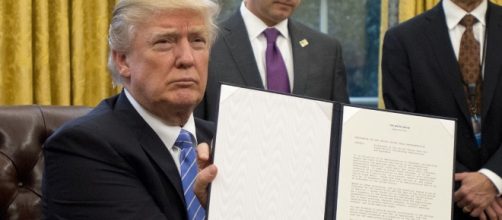Donald Trump's governing orders will start to overhaul the US immigration enforcement management that he promised during his campaign. In 2006, President George W. Bush signed the "Secure Fence Act" wich authorized more barriers and surveillance equipment. About 700 miles of fence already runs along the US-Mexico border. However, it's not one continuous structure, and a large number of Border Patrol apprehension continues. With President Trump's new policy, anyone caught attempting to re-enter illegally will get a two-year minimum federal prison sentence.
The hefty task on the way
The development of the wall will begin later in the year, and the planning will start immediately. Experts explained that the construction of such a barrier would be almost unthinkable, it would require enormous amounts of material, and it wouldn't stop immigration -- it might encourage people to risk their lives to cross at unwalled places where construction is unworkable. The cost would be astronomical -- Trump confirmed that the wall would be built with federal funds and then seek reimbursement from Mexico. Trump guarantees an agreement with the Mexican government will start soon.
Crossing back into the US following deportation is going to be severely enforced
Far fewer migrants from Mexico are successfully entering the country illegally than a decade ago as a result of stepped-up border enforcement, but it's still a problem.
The president wants to establish a mandatory, minimum federal prison sentence for people who illegally re-enter the country. "When people come in, they will be sent out; if they come back in, they'll go to prison for quite a while," Trump stated during his press conference on January 25. Also, he proposes a five-year mandatory, minimum sentence for people with felony convictions, multiple misdemeanor convictions, or two or more prior deportations for those illegally re-entering the country.
The president is expected to restrict the flow of illegal re-entry to the United States, and he's beginning to take steps to tighten border security.

